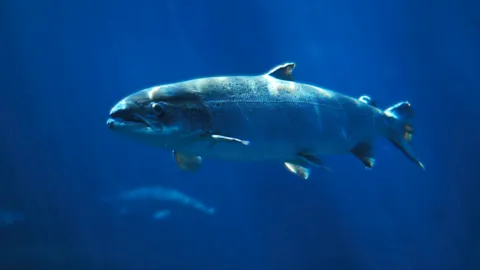Fish welfare assessment and technology documentation for aquaculture systems
Providing a high standard of animal welfare is essential to meet market demands, legal requirements, and societal ethical expectations, and DNV offers services to monitor and recommend improvements that enhance fish welfare throughout the production cycle.
Fish welfare assessment and technology documentation for aquaculture systems
Fish welfare in aquaculture
Fish welfare is increasingly in the spotlight for regulators, retailers, and consumers alike. The extent to which the environment and technology support the wellbeing of farmed fish directly impacts fish health, production performance, product quality, and brand reputation.
Fish farmers are expected to ensure and document animal welfare both during treatments and routine production to meet societal and market expectations.
How our fish welfare services support you
DNV provides comprehensive, structured welfare assessments based on recognized standards such as the Laksvel standard. By systematically reviewing welfare conditions and identifying challenges throughout the production chain, we help farmers pinpoint welfare issues and implement effective solutions.
Our fish welfare services include:
- Monitoring of Welfare: We perform ongoing welfare assessments aligned with the Laksvel standard, evaluating key indicators, such as behaviour, appetite, mortality causes, individual health makers (skin condition, anomalies, gill health, etc.), and environmental factors. Continuous monitoring, paired with scientifically grounded recommendations, enables producers to proactively address welfare risks before problems escalate.
- Generation Review of Welfare: At both site and corporate levels, DNV evaluates welfare performance over entire production cycles. These comprehensive assessments document and benchmark welfare outcomes, helping to identify systematic issues and enabling targeted improvements.
- Gap Analysis: Our welfare gap analysis identifies areas where current practices fall short of industry benchmarks or established welfare standards, providing clear direction for enhancements.
- Testing new equipment: Regulations require that new equipment potentially affecting fish welfare undergo welfare impact testing. DNV’s accredited field trial department has extensive experience in testing and validating new technologies to ensure they meet welfare requirements.

Trusted experts in aquaculture
Our independence, scientific rigor, and focus on continuous improvement help aquaculture operations build consumer trust, meet regulatory expectations, and promote responsible farming.

Benefits of our fish welfare services
Uncovering of challenges related to production strategy is the basis for:
- Benchmarking against key welfare performance indicators (KPIs).
- Enhanced fish health and growth rates.
- Lower stress levels and reduced mortality.
- Increased trust from consumers and stakeholders.
- Support for regulatory compliance and approval for future production expansion.
Explore resources to support your fish health and welfare program
Access essential materials designed to strengthen your aquaculture health and welfare management - from welfare and biosecurity frameworks to environmental and operational performance tools.
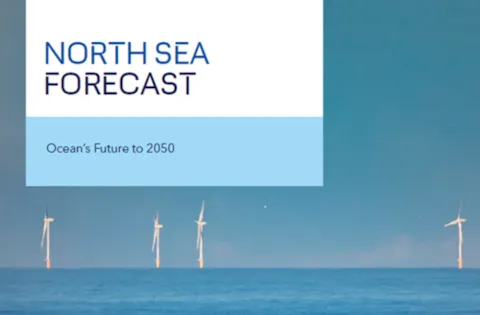
North Sea Forecast
Discover how DNV’s data-driven forecasts help producers in the North Sea prepare for climate and regulatory changes while enhancing biosecurity and long-term fish health.
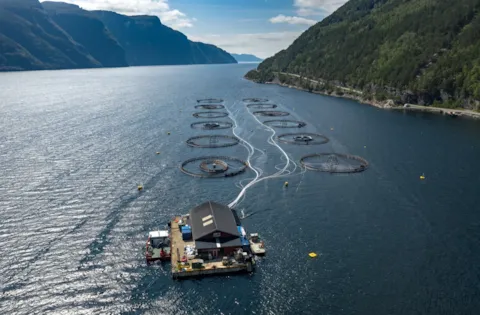
Sea Lice Monitoring of Tomorrow - The Potential of Automated Sea Lice Counters
Learn how DNV’s collaboration with technology partners is transforming sea lice detection and response, driving innovation in automated monitoring and sustainable production.
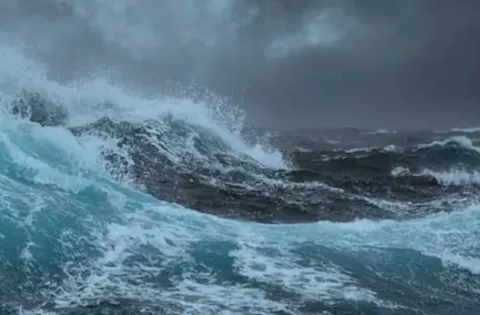
Aquaculture going offshore
Explore how offshore aquaculture is redefining scale and sustainability, and how DNV helps operators manage biological risks and ensure compliance in challenging environments.
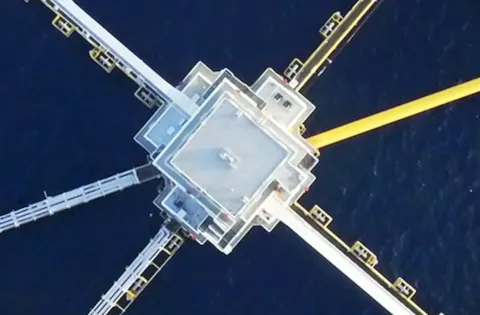
Marine Aquaculture Forecast to 2050
Gain a forward-looking perspective on how global aquaculture will evolve — from new disease management standards to emerging sustainability frameworks.
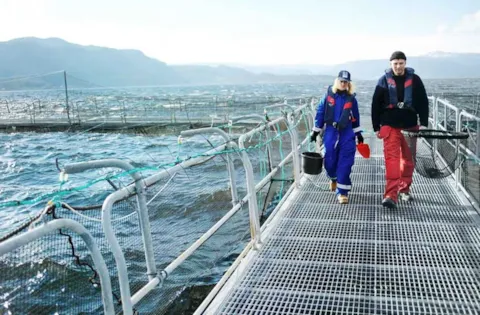
Understanding and managing aquaculture risk
See how DNV’s risk-based assessment tools enable producers to anticipate threats, strengthen regulatory readiness, and maintain consistent operational performance.
Contact us

